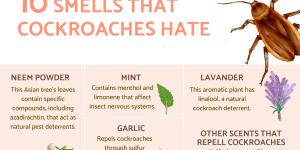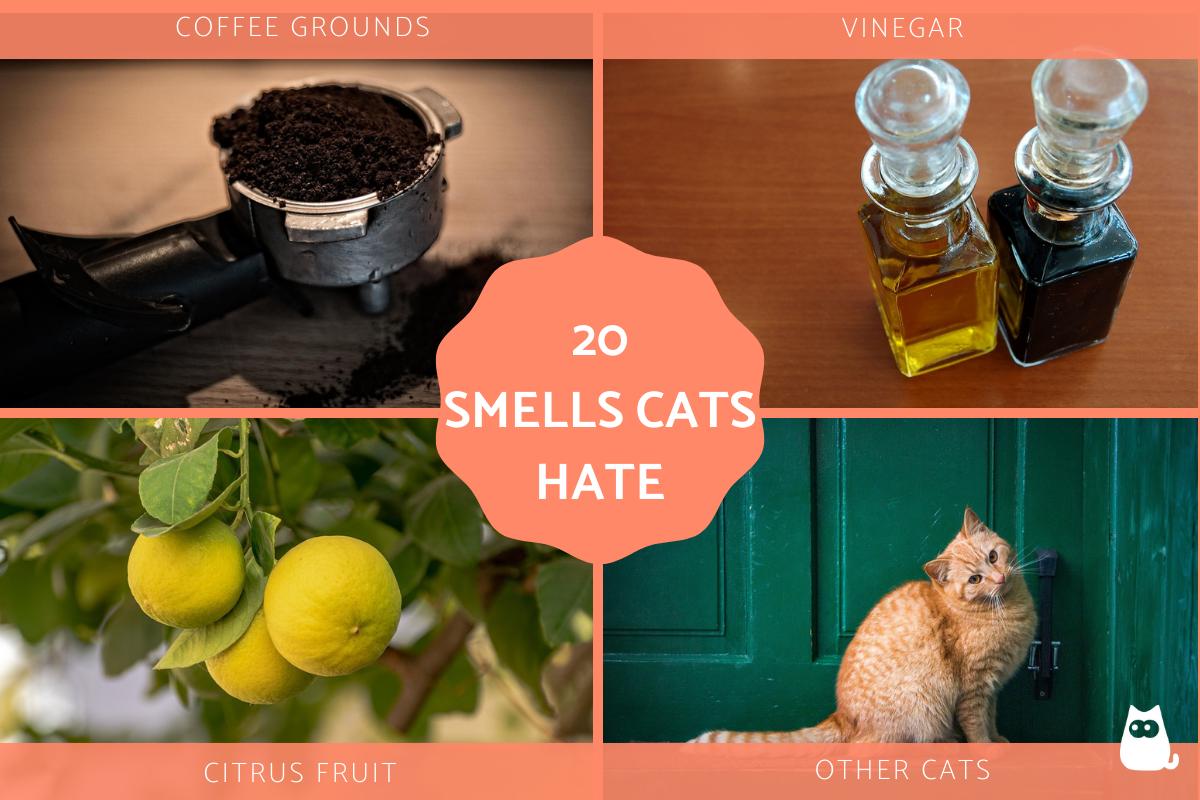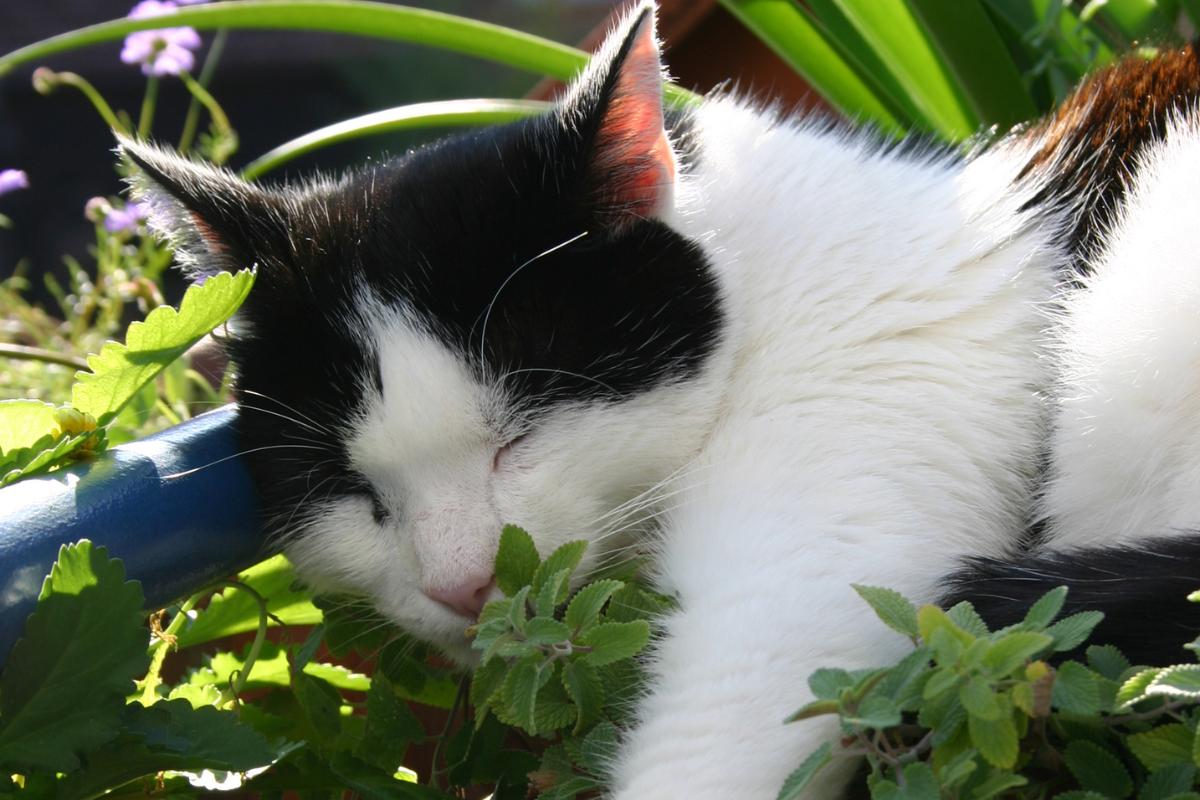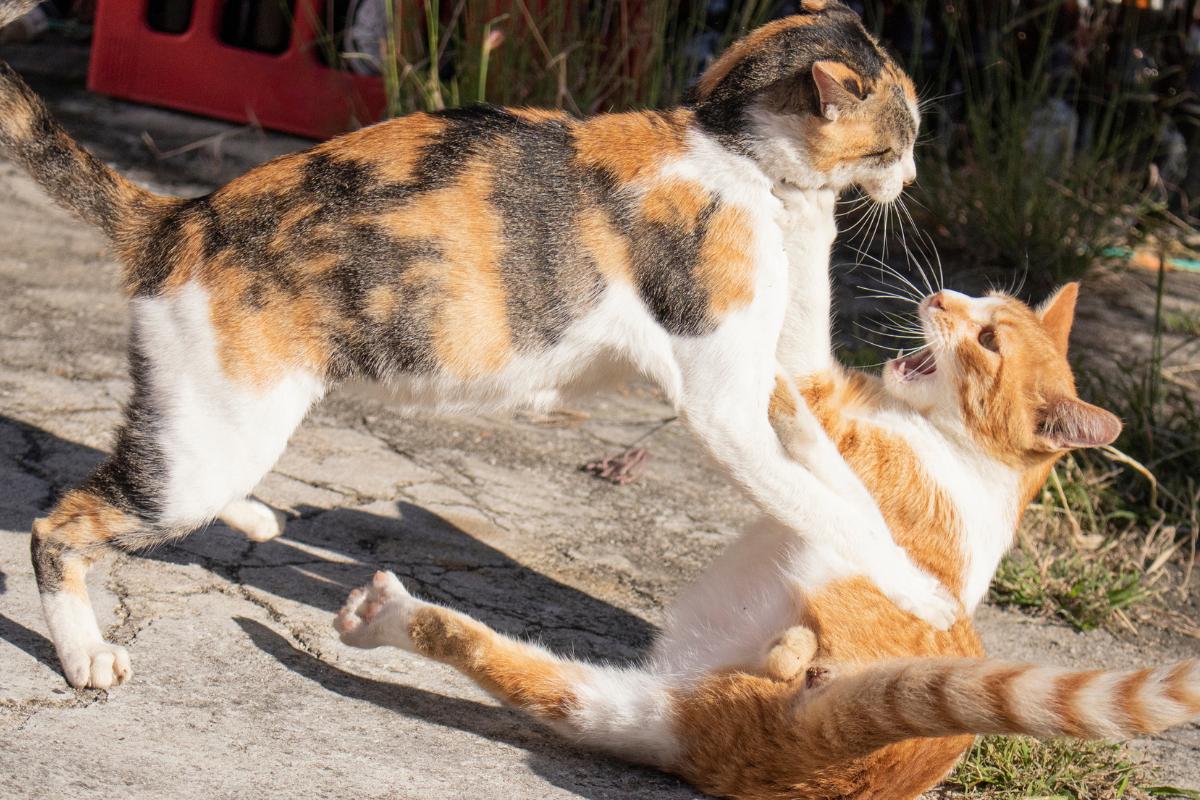Smells That Cats Hate the Most

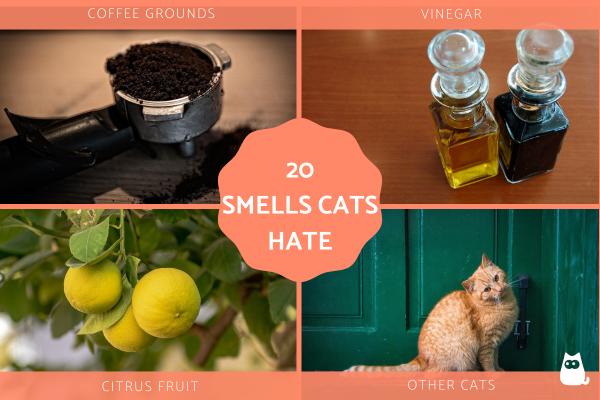

See files for Cats
A cat uses their nose to explore their surroundings. Much more acute than our own, a cat's sense of smell means they are able to register scents and aromas which are barely perceptible to us. Many of the scents they enjoy are related to their diet, with cooking food odor being particularly irresistible. Some smells can even drive some cats wild, such as catnip. However, this incredible olfactory ability can also mean even a whiff of an odor they don't like can send them running. While they may be pleasant to us, many of these smells can be natural cat repellents.
If you want to know the scents that repel cats, AnimalWised shares the 20 smells that cats hate the most. Keep reading to find out what odors you cat loathes.
- A cat's sense of smell
- Citrus scents
- Banana
- Dirty litter box
- Pine
- Spoiled fish
- Pepper
- Soaps and deodorants
- Essential oils
- Eucalyptus
- Lemongrass
- Vinegar
- Lavender
- Cinnamon
- Coffee grounds
- Garlic
- Mustard
- Mint
- Alcohol
- Onions
- Other cats
A cat's sense of smell
Did you know cats have a sense of smell that is fourteen times stronger than that of a human being? This is because they have many more olfactory receptors than our own. They also have a functioning vomeronasal organ. Also known as a Jacobson's organ, this is an auxiliary sense organ which helps them to detect scent molecules in the air from a long distance.
A cat's olfactory system is distributed throughout its entire head, which gives them an amazing ability to smell. Certain molecules in the air can be very strong and repellent to cats. There may even be some smells we are unable to detect which cats find unpleasant. However, it is important to know every cat is different. Some cats may be repelled by a scent while others will not care and ignore it.
Most cats don't enjoy smells humans don't like. However, there are also some other interesting smells that they hate, but that we often find pleasurable. We share the 20 smells cats hate the most below.
1. Citrus scents
The first scent is any citrus fruit which includes oranges, lemons, etc. In fact, these foods are used as natural repellents for unwanted cats in certain areas, such as a garden. Cats not only dislike the smell but they also hate the taste of any citrus fruit.
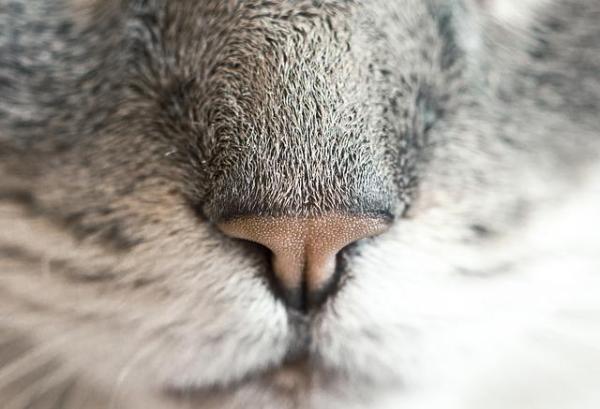
2. Banana
Banana is another fruit that can keep a cat away due to the scent. Although tasty and high in potassium, cats don't seem to be so impressed with this scent. Many people rub a banana peel on the sofa or table to keep their cat from climbing on top.
3. Dirty litter box
Who likes to go to a bad-smelling bathroom? The same applies to cats when their litter box is dirty. Under no circumstances will they want to go near it. In fact, this may lead them to relieve themselves in another area. So, don't forget to provide your cat with enough litter boxes and make sure they are cleaned regularly.
Learn more about litter box etiquette with our article asking can two cats share one litter box?
4. Pine
Even though some natural litters use this type of material, the smell can be too intense for some. A strong pine smell can have a repellent effect on your cat, to the point in which they end up hating the litter and reject it. Instead, opt for neutral-scented litter so your cat is comfortable with their litter box and uses it instead of going elsewhere.
5. Spoiled fish
This is another similarity between cats and human beings. There is a huge difference between liking the taste of fish and liking the smell of it once it's gone-off. Just like humans, hate everything that is out of date. We recommend that you never give your cat spoiled fish. Not only will they not like it, but it can cause serious gastrointestinal upset such as the cat having vomiting and diarrhea at the same time.
You should also make sure your garbage is covered so it doesn't smell and bother your cat whose sense of smell is heightened in comparison to us.
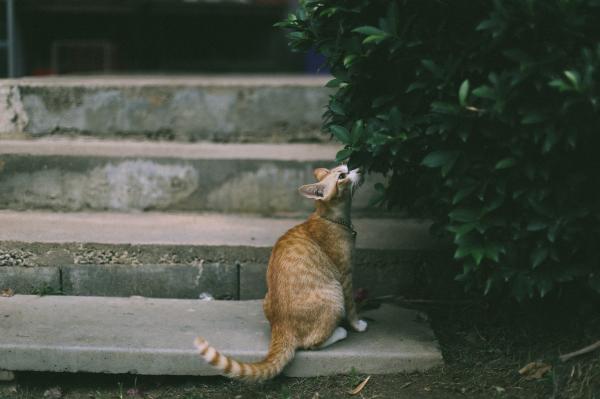
6. Pepper
Cats don't appreciate the smells of spicy or heavily seasoned foods such as pepper, chile or even curry. Their sense of smell perceives these as if they are toxic. If you cook for your cat, never season it. Cats enjoy cooked meat with no spices. Also, adding salt or other ingredients can harm the cat as they cannot handle this in large amounts.
7. Soaps and deodorants
Cats do not appreciate strong chemical smells. Be careful with the soaps and cleaning products you use around the house. You must be especially careful with the products you use to clean their litter box and food bowls as they need to be non-toxic to your cat. A good rule of thumb is to keep them plain and natural.
8. Essential oils
Cats love most flowers and plants, interacting with them without problem. Otherwise you wouldn't have much of a problem keeping them out of your garden. Due to their strong sense of smell, they have problems with essential oils. They are too overpowering and can cause them to have quite a severe reaction. This is not to mention the fact that there are some plants which are toxic to cats. While smelling shouldn't do them much harm, ingesting their leaves, flowers or even essential oils can.
Discover what plants are most toxic to cats with our related article.
9. Eucalyptus
Most cats are averse to the smell of some plants because they are toxic for them. A typical example is their rejection of eucalyptus. Their essential oils can also be harmful to them, and they usually know to stay away from it.
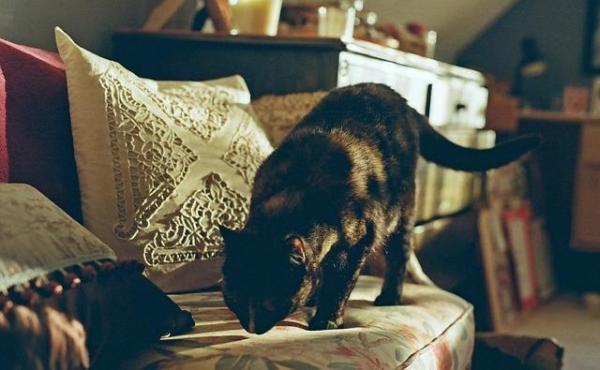
10. Lemongrass
Although fresh lemongrass is often safe for cats, they dislike its strong citrus-like scent. The sharp, bright aroma may remind them of citrus fruits, which are universally unpleasant to most cats.
11. Vinegar
A cat's sensitive nose does not well tolerate the acidic and pungent smell of vinegar. They find it is overpowering to them. Many people use diluted vinegar as a natural cat repellent to keep them away from certain areas.
12. Lavender
Lavender's strong floral scent is often disliked by cats, especially when concentrated in essential oils. As with eucalyptus, this can be toxic. Cats generally avoid plants with strong herbal or floral fragrances.
13. Cinnamon
As we have already seen, cats tend to avoid spicy scents. Cinnamon is a spice with a sharp and intense odor. Additionally, cinnamon oils can be irritating and potentially toxic if inhaled, causing them to steer clear.
14. Coffee grounds
The smell of coffee is intense and complex, often overwhelming for a cat’s sensitive olfactory system. Coffee grounds are sometimes used as a garden deterrent for cats. They can be put around the soil of certain plants, both helping to repel the cat and to help keep the soil enriched in nutrients.
Learn about other natural scents to stop a cat spraying.

15. Garlic
The pungent aroma of garlic repels cats due to its sulfur compounds. These are strong-smelling and cats have a particular aversion to them. Raw or powdered garlic is particularly unappealing. Garlic is also toxic for cats, so they should never ingest it.
16. Mustard
The strong, sharp smell of mustard is another scent cats find overwhelming. Mustard’s spiciness is unpleasant to them, causing them to avoid it. This includes all types of mustard, whether wholegrain, yellow or whatever.
17. Mint
The cooling scent of menthol or mint is very strong and unnatural for cats, who tend to associate it with potential irritants. Plants in the mint family (e.g. peppermint) can irritate the nasal passages of cats, so we need them to stay away..
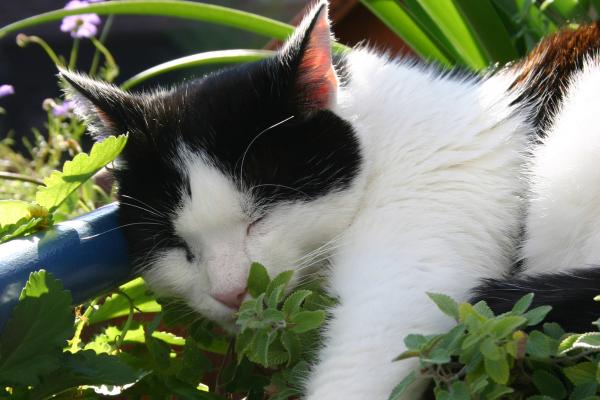
18. Alcohol
The strong, sharp scent of rubbing alcohol is often repulsive to cats. They find the smell harsh and irritating, making them steer clear of surfaces cleaned with alcohol. Alcoholic drinks with a strong smell can also be repellent to them, but not as much.
19. Onions
Cats are averse to the sulfur compounds in onions, which smell strong and sharp. Onions, like garlic, can be toxic to cats and they tend to naturally avoid them.
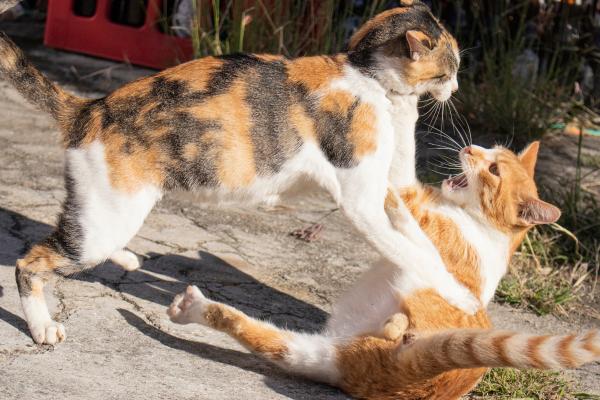
20. Other cats
Cats may also dislike the smell of other cats they are not used to. This usually has more to do with territory and safety than the actual smell. Nevertheless, unless it is their human companion or another animal in their household, cats will typically not appreciate the smell of any other animal.
Learn how to make two cats get along if they don't like each other with our related guide.

If you want to read similar articles to Smells That Cats Hate the Most, we recommend you visit our Facts about the animal kingdom category.

